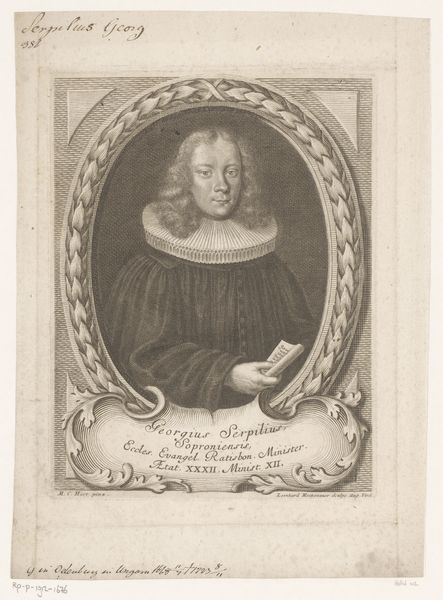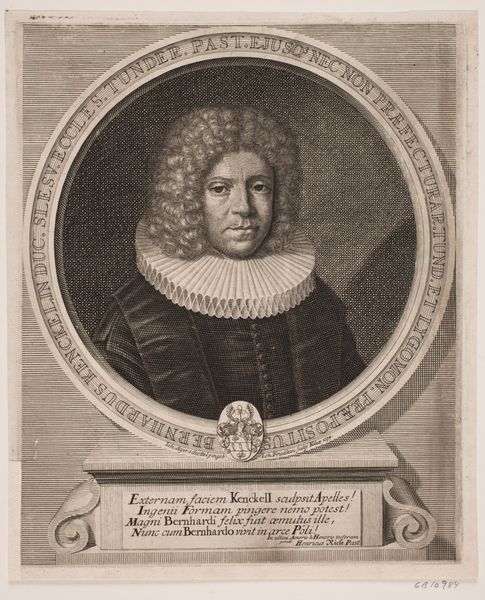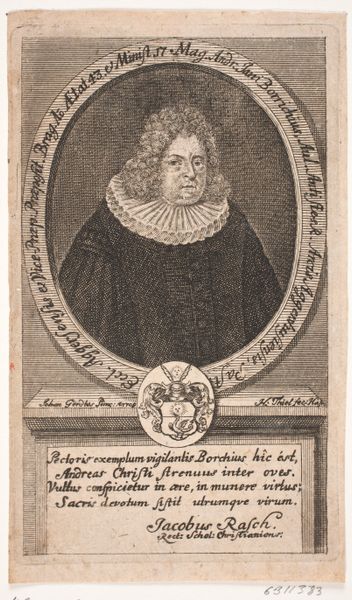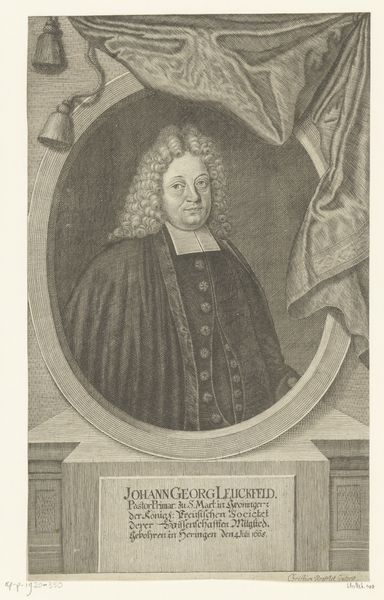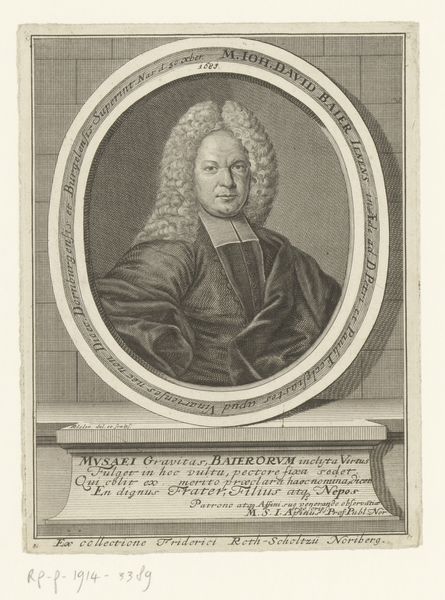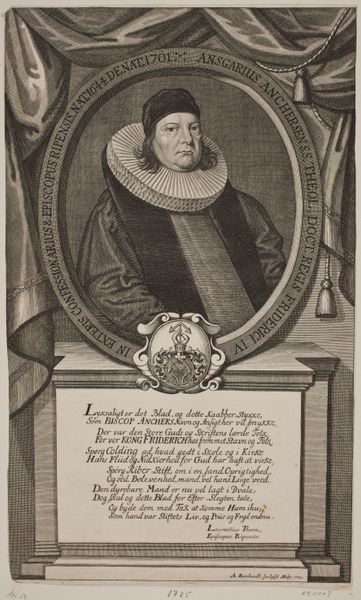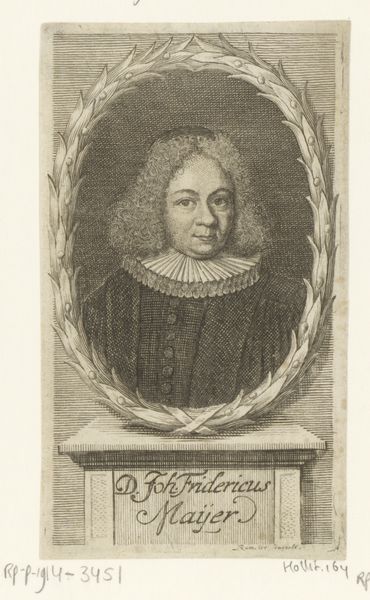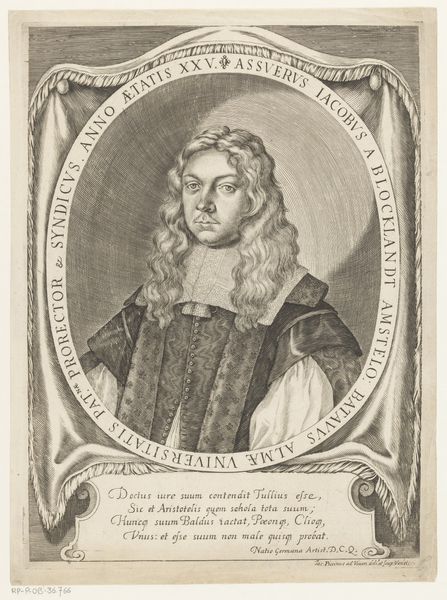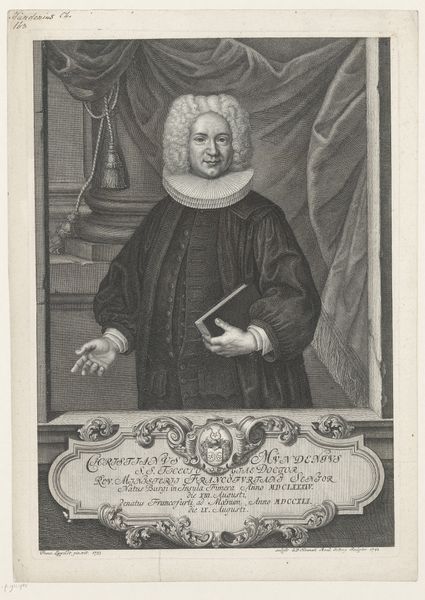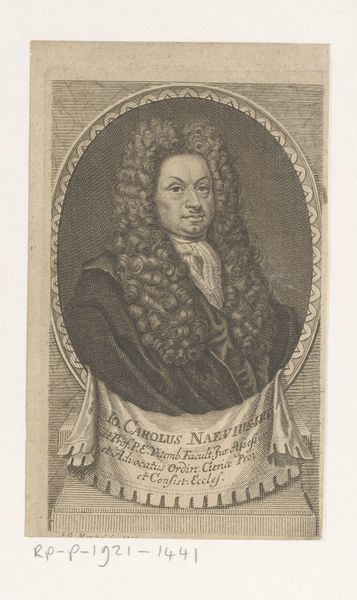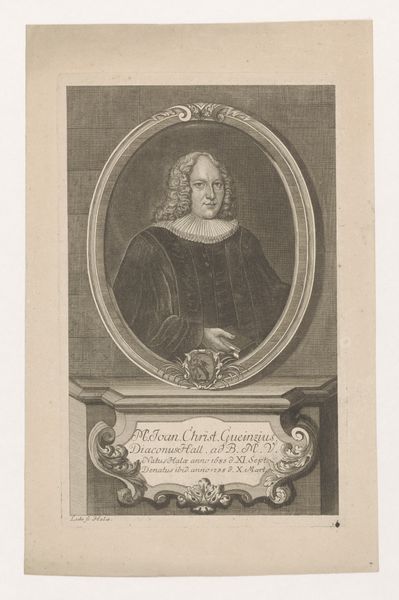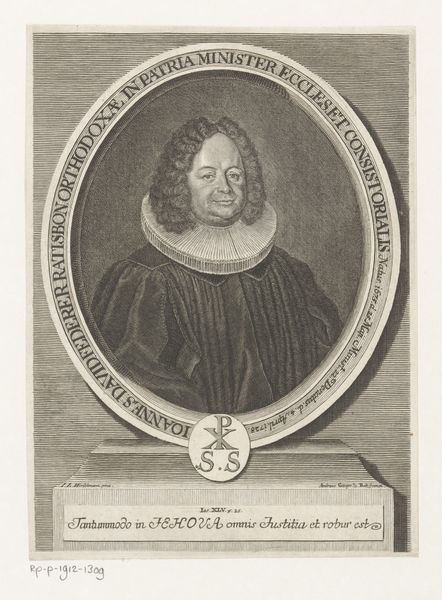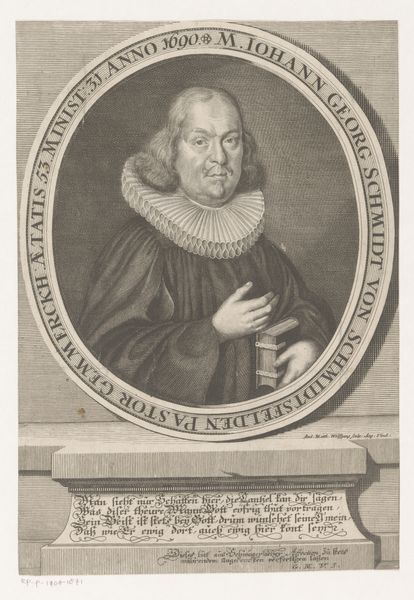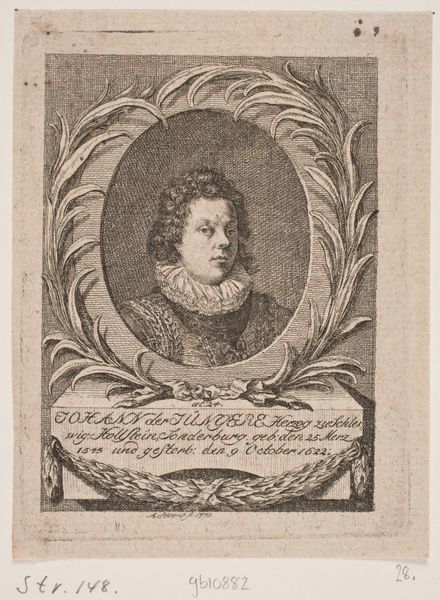
print, engraving
#
portrait
#
baroque
# print
#
old engraving style
#
history-painting
#
engraving
Dimensions: height 182 mm, width 136 mm
Copyright: Rijks Museum: Open Domain
This is Johann Georg Mentzel’s “Portret van Heinrich Wurtzer,” created sometime between 1716 and 1743, and made with etching. Mentzel, a German draughtsman and engraver, was working in a period defined by rigid social hierarchies. The portrait presents Heinrich Wurtzer, a pastor, framed by symbols of status. The intricate frame, the wig, and the books subtly communicate Wurtzer’s privileged position within his community. The very act of commissioning a portrait was a statement of social standing. Consider what it meant to be represented in this way. How does it feel to have one’s identity so publicly and permanently displayed? Portraits like this one weren’t just about physical likeness, they were about constructing a persona, carefully curated to project authority and respectability. Wurtzer's identity as a religious leader is interwoven with his social status, a reflection of the power structures inherent in 18th-century society. Think about what's included in this portrait, and equally, what isn't. What elements contribute to our understanding of Wurtzer and his time?
Comments
No comments
Be the first to comment and join the conversation on the ultimate creative platform.
